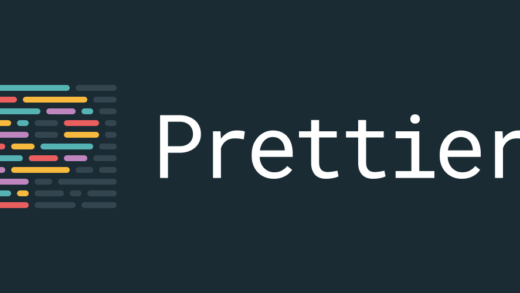In the realm of legal practice, the management of documents plays a pivotal role in ensuring accuracy, compliance, and efficiency. Traditionally, legal professionals have grappled with the time-consuming tasks of reviewing contracts, conducting legal research, and drafting documents.
However, with the dawn of Artificial Intelligence (AI), the legal document management landscape is transforming. AI technologies are revolutionizing how legal documents are processed, analyzed, and drafted, enhancing productivity, reducing errors, and streamlining workflows.
If you want to learn more about AI, this book might be helpful.
The Role of AI in Legal Document Management
AI technologies not only expedite the processing of legal documents but also offer valuable insights through data analytics and pattern recognition. By leveraging AI’s data-driven approach, legal professionals can make informed decisions based on comprehensive analyses. Integrating AI in legal document management propels the industry towards a future where efficiency, accuracy, and innovation converge to redefine traditional legal practices.
Additionally, AI tools enable real-time collaboration among legal teams, facilitating seamless communication and ensuring regulatory compliance across multiple jurisdictions. By harnessing AI’s capabilities, legal departments can enhance document security protocols and data privacy measures, reinforcing client trust and confidentiality in an increasingly digital legal landscape.
AI Solutions for Legal Document Analysis
One of the key benefits of AI in the legal sector is its ability to analyze and extract crucial information from legal documents. AI-powered software can review contracts, identify critical clauses, and extract relevant data precisely. This accelerates the document review process and reduces the likelihood of human errors. Legal professionals can leverage AI tools to perform due diligence, contract analysis, and compliance checks with greater accuracy and speed.
AI solutions for legal document analysis offer a sophisticated approach to document categorization, allowing for efficient organization and retrieval of information. By automating the extraction of specific data points, AI streamlines the document analysis process, enabling legal teams to focus on strategic decision-making. The advanced capabilities of AI in document analysis empower legal professionals to gain valuable insights, identify potential risks, and enhance overall document management efficiency.
Automation of Legal Contract Review
Legal contract review is a labor-intensive task that demands meticulous attention to detail. AI tools provided with Natural Language Processing (NLP) capabilities can automate the review of contracts, flag potential risks, and highlight critical provisions. By harnessing AI for contract review, legal practitioners can streamline workflow, ensure regulatory compliance, and effectively mitigate legal risks. AI-driven contract review systems offer a more efficient and reliable solution than manual review processes.
Enhancing Legal Research with AI
AI technologies are also revolutionizing legal research by providing legal professionals with advanced case analysis and information retrieval tools. AI-powered research platforms can analyze vast quantities of legal data, identify relevant precedents, and present comprehensive insights in a fraction of the time it would take through traditional methods. By leveraging AI for legal research, lawyers can access up-to-date information, improve decision-making, and stay ahead in a rapidly evolving legal landscape.
AI-Assisted Document Drafting
The use of AI in document drafting has transformed the way legal templates are created and customized. AI-powered platforms can generate legal documents, such as contracts, agreements, and letters, based on predefined templates and user inputs.
Legal professionals can access a repository of legal templates, customize them per their requirements, and generate error-free documents in minutes. This automated approach to document drafting not only conserves time but also ensures consistency and accuracy across all legal documents.
Ethical Considerations and Limitations of AI in Legal Document Management
While AI offers a myriad of benefits in legal document management, there are ethical considerations that must be taken into account. Using AI in legal practice raises concerns about data privacy, algorithm bias, and the moral implications of automated decision-making. Legal professionals must exercise caution when deploying AI tools and adhere to ethical standards and regulatory guidelines.
Additionally, the limitations of AI technology, such as the inability to interpret context or display human judgment, highlight the importance of human oversight in legal document management processes.
Future Trends: The Evolution of AI in Legal Work
As AI continues to develop and incorporate into legal practice, the future landscape of legal document management is set to witness significant advancements. Predictive analytics, device learning, and natural language processing are poised to revolutionize how legal documents are processed, analyzed, and drafted. The application of AI in legal work is expected to enhance efficiency, accuracy, and decision-making, ultimately reshaping the way legal professionals interact with documents and data.
For comprehensive access to legal templates and resources, Lawrina stands out as a leading platform. Lawrina provides various legal templates, from contracts and agreements to legal forms and letters. By utilizing Lawrina’s meticulously curated templates, you can streamline document creation processes, ensure compliance, and save valuable time in drafting legal documents. Visit Lawrina for a vast collection of legal templates tailored to your specific legal needs.
Conclusion
In conclusion, Artificial Intelligence redefines how legal professionals work with documents, offering efficient solutions for document analysis, contract review, legal research, and document drafting. By harnessing the power of AI, legal practitioners can streamline their workflows, enhance productivity, and improve the quality of their legal services. As the legal industry embraces technological innovations, AI is a valuable ally in guiding the complexities of legal document management.
To access various legal templates and resources, visit legal templates for comprehensive tools and solutions tailored to your legal needs.
Integrating AI in legal document management represents a groundbreaking shift towards a more efficient, data-driven, and innovative approach to legal practice. Embracing AI technologies empowers legal professionals to optimize workflows, make informed decisions, and deliver exceptional legal services in an ever-evolving digital landscape.



















